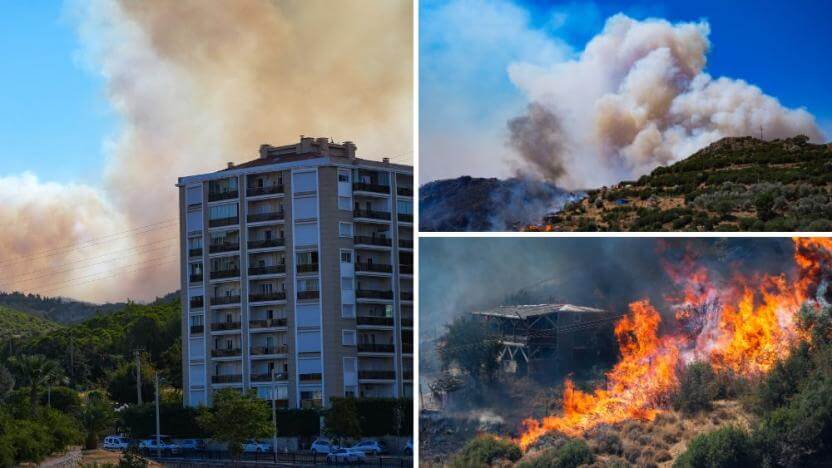A forest fire in Turkey’s western coastal province of İzmir, fanned by strong winds, is near residential areas, forcing some people to be evacuated, Reuters reported, citing a local governor on Friday, as firefighters also tried to contain other wildfires in the north.
The fire in İzmir, the cause of which is as of yet unknown, started late on Thursday in the Karşıyaka district, as firefighters were already working to contain three separate fires in northwestern Turkey.
İzmir Governor Suleyman Elban said the fire in Karşıyaka continued in between four and five different areas despite efforts to contain it using planes, helicopters and other vehicles, adding that a village had been evacuated.
“The intervention is becoming difficult as it is very close to residential areas. There is no loss of life as of now,” Elban said. “We have information that some houses burned. Since there are winds of up to 80 kilometers [49.71 miles] per hour now, we often have to stop the aerial intervention,” he said, adding efforts would intensify if the winds eased.
Footage on local broadcasters showed flames engulfing tracts of land, approaching apartment buildings and roads in Karşıyaka, with black smoke billowing above forests and the city.
The fires in northwestern Turkey are in the Eceabat district of Çanakkale province, the Göynük district of Bolu province and in Manisa province’s Gördes district.
Earlier on Friday, Agriculture and Forestry Minister İbrahim Yumakli said the fire in Çanakkale — sparked by a roadside electricity pole — had been contained and that the Manisa blaze was partially contained. Efforts continued to douse the fire in Bolu.
He warned of a high risk of wildfires in the next three days due to high temperatures, low humidity and strong winds.
The governors of Çanakkale and Bolu provinces said several neighborhoods and villages had been evacuated as a precaution but that there was no immediate threat to residential areas.
Turkey’s coastal regions in particular have in recent years been ravaged by wildfires, as summers have become hotter and drier, which scientists relate to climate change.



